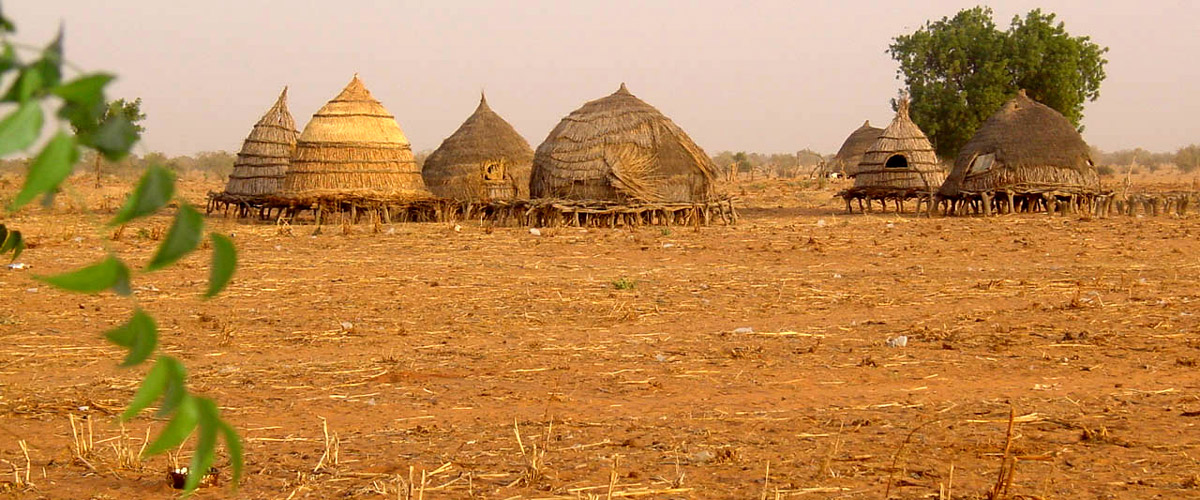
Thought Piece: Transitions and CCRP
Published on:
September 10, 2021
By Rebecca Nelson, Professor, School of Integrative Plant Science and Department of Global Development, Cornell University
As I step away from twenty years as the scientific director of the McKnight Foundation’s Collaborative Crop Research Program (CCRP), I’m inspired to reflect on other transitions of the moment.
The climate crisis is kicking in hard, especially in the areas in which the CCRP focuses its work, which are some of the world’s most challenging places to farm. The global pandemic is forcing us to change how we work—bringing new challenges, but also inviting more inclusive collaborations that cost less and create less greenhouse gasses.
The CCRP’s work continues to advance, moving from a focus on problem solving to a more holistic focus on agroecological transitions.
All this change is both terrifying and thrilling.
In my early days in graduate school, I first learned about agroecology from Sunny Power, a friend who later became an inaugural member of CCRP’s Advisory Committee. Though I was studying genetics, Sunny’s agroecology work was a beacon signaling me toward my calling. I spent a couple of months working with her on a corn-insect-disease system in Nicaragua, where I saw the importance of agroecology in practice. Managing pests and diseases without the use of toxic pesticides calls for sophisticated science alongside an awareness of social and political factors. I was hooked.
In the ensuing years, I had the privilege of pursuing research on rice diseases in the Philippines and potato diseases in Peru. I experienced the greatest satisfaction when I got out of the lab and started working directly with farmers on disease management.
Those experiences working with farmers in their own fields instilled an appreciation of the beautiful diversity of farmers’ circumstances, cultures, and approaches. I became keenly aware of the vital importance of agricultural biodiversity and the ongoing need to protect and enhance it.
Farmers’ varied and complex contexts can’t be addressed with simplistic solutions. They need to consider the options, and then integrate and implement what works for them. What they learn along the way, their participatory research, is science as collective action. It’s a wealth of potentially world-changing scientific activity.
In the early days of the CCRP, most of its projects focused on crop improvement, often focused on breeding new crop varieties that had hitherto been neglected by the international research system. In more recent years, the program has shifted its focus to supporting agroecological transitions in a more holistic sense. For example, establishing farmer research networks (FRNs) brings groups of farmers to the center of the research and enable an integration process that drives agroecological transitions. This year, the CCRP is convening the more than 30 FRNs it supports together with others in our wider network to share experiences, insights and inspiration.
After two decades of helping lead the CCRP fulfill as it pursued its mission, now I look forward to a more hands-on effort to address climate concerns, enhance food security, and support a circular economy of organic resources.
A circular economy—a shift from making, using and dumping things to keeping them in circulation—is a foundation of agroecology. Applied to agriculture and food security, the idea could involve recovering organic resources from waste streams to repurpose for feed and fertilizer. This idea has given me a lot of hope and a strong sense of urgency.
I’ll be focusing on recovering nutrients and carbon from sanitation to soils. This focus is inspired, in large part, by the work of one of CCRP’s FRNs in West Africa, FUMA Gaskiya in Niger. The farmers got the idea of using sanitized human urine as a crop fertilizer. With the blessing of religious leaders and health authorities—and aided the local women’s clever rebranding of urine as “boss”—it has really taken off. Data shows this nature-based solution is working well. Improving soil, plant, human, and planetary health by reinventing sanitation as a source of large-scale soil resources could be transformative.
It’s time for all of us—as individuals and organizations—to tackle research for the public good, taking bold approaches that will lead to ecological, social, economic and health benefits for people, place, and planet. We should look toward nature-based strategies and participatory research approaches—including farmer research networks. They’re landing on new ideas with the potential for broad and lasting improvements. They’re a key movement in the larger global transition we so badly need.
As I change my relationship to the CCRP, I look forward to new endeavors even as I continue to cheer CCRP’s ongoing efforts. Let’s all continue advancing the agroecological transitions the world and its people need.